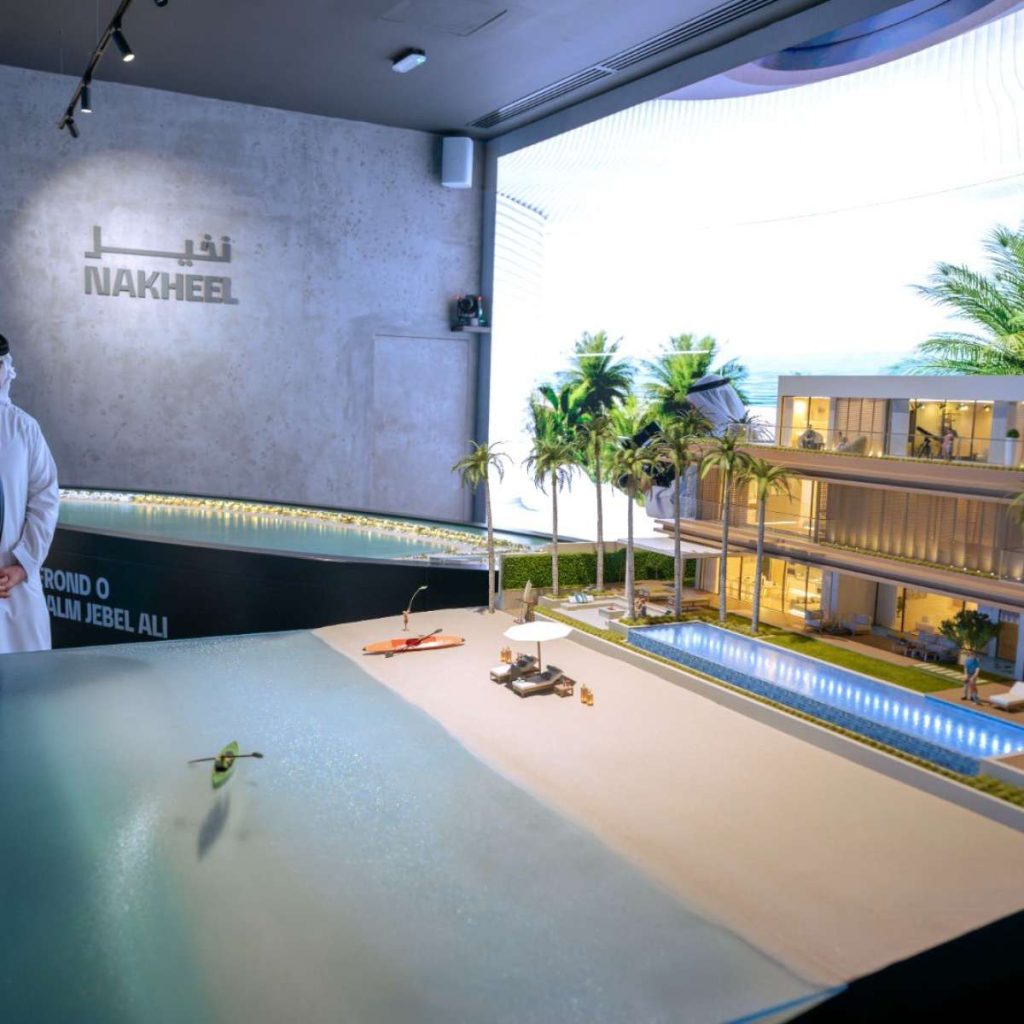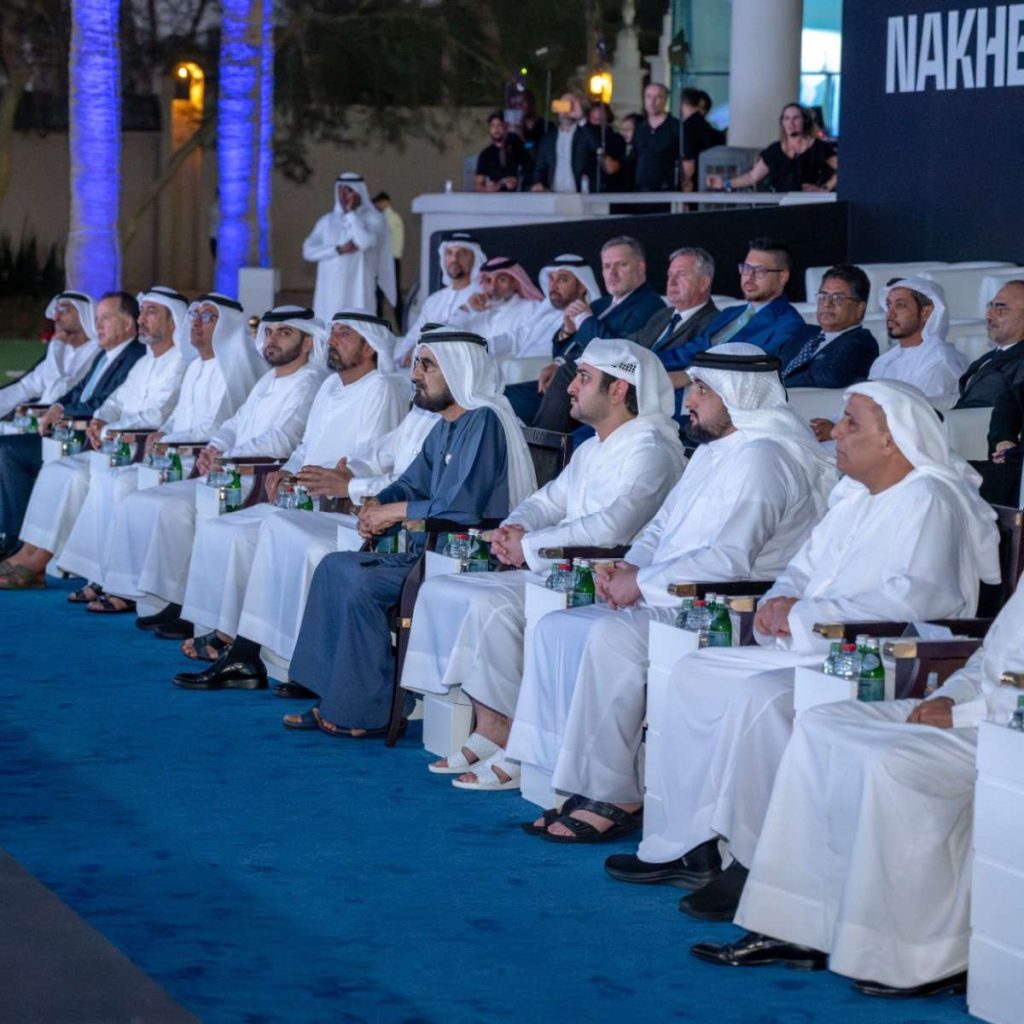
The new futuristic development masterplan of Palm Jebel Ali, twice the size of Palm Jumeirah, is part of Dubai 2040 Urban Master Plan….reports Asian Lite News
His Highness Sheikh Mohammed bin Rashid Al Maktoum, Vice President, Prime Minister and Ruler of Dubai, approved the new futuristic development masterplan of Palm Jebel Ali. Part of the Dubai 2040 Urban Master Plan, Palm Jebel Ali is one of a series of visionary projects being undertaken by world-leading Dubai-based real estate master developer Nakheel.
H.H. Sheikh Maktoum bin Mohammed bin Rashid Al Maktoum, First Deputy Ruler of Dubai, Deputy Prime Minister and Minister of Finance, and H.H. Sheikh Ahmed bin Mohammed bin Rashid Al Maktoum, Second Deputy Ruler of Dubai, were present during the approval of the masterplan.
Sheikh Mohammed said Dubai will continue to innovate and deliver world-class lifestyle destinations that enhance its status as the globe’s best city to live, work and visit. “We have vast ambitions for the future and we are confident that we can transform our grand vision for development into reality. Palm Jebel Ali will further strengthen our urban infrastructure and consolidate the city’s emergence as one of the world’s leading metropolises. This new groundbreaking project reflects our strategic development plan centred on raising the quality of life and happiness of residents.”

He further said, “Dubai has entered a new phase of development driven by innovation and creativity. By taking advantage of the opportunities arising from the evolving global environment, Dubai’s competitiveness and reputation as a thriving global business and tourism hub continue are set to grow further. We remain committed to shaping a brighter future both for our people and the world.”
“The urban expansion that Palm Jebel Ali represents is a testament to Dubai’s economic dynamism. It also signifies Dubai’s exceptional outlook as a hub for talent and investment. The project will contribute to Dubai’s sustainable development by opening new avenues for growth in several sectors,” he added.
Palm Jebel Ali will raise the global benchmark in waterfront living and offer an exceptional breadth of luxury lifestyle amenities for residents, families and visitors, supporting the objective of the Dubai Economic Agenda D33 to consolidate Dubai’s status as one of the world’s top cities for business and tourism. The project also marks the beginning of a new growth corridor in the Jebel Ali area, underlining the expansion of the emirate.

Spanning an area of 13.4 square kilometres and occupying an area twice the size of Palm Jumeirah, Palm Jebel Ali will feature extensive green spaces and unique waterfront experiences. The project will add approximately 110 kilometres of coastline to Dubai that will provide approximately 35,000 families with unrivalled luxury beachside living.
Palm Jebel Ali will feature over 80 hotels and resorts, and a wide choice of entertainment and leisure facilities that will contribute to Dubai’s tourism sector, while distinguishing the archipelago as an aspirational residential destination in the city.
In line with the Dubai 2040 Urban Master Plan, Palm Jebel Ali will support the emirate’s vision to deliver the highest standards of urban infrastructure and facilities, increase beach destinations as well as support sustainable development and facilitate the expansion of the population, estimated to reach approximately 5.8 million by 2040.
Setting a model in contemporary urban planning practices, Palm Jebel Ali will feature mixed-use walkable neighbourhoods, incorporate smart city technologies and sustainability practices, as well as provide a diverse range of mobility options for residents, visitors and communities. This will position Palm Jebel Ali as a global benchmark for waterfront living, as well as contribute to the transformation of the landscape of Dubai.
Palm Jebel Ali has been designed keeping sustainability in mind, with plans including renewable energy resources being incorporated into its infrastructure design, allowing it to become almost completely self-sufficient in terms of power generation once complete. As much as 30% of Palm Jebel Ali’s energy requirements will be obtained from renewable sources.
ALSO READ: UAE’s trade boom expands access to 2.2b consumers


